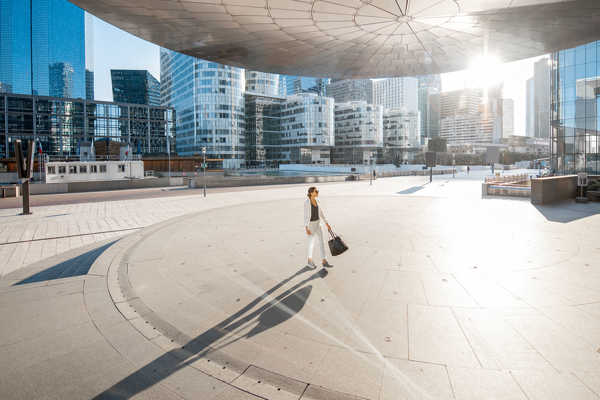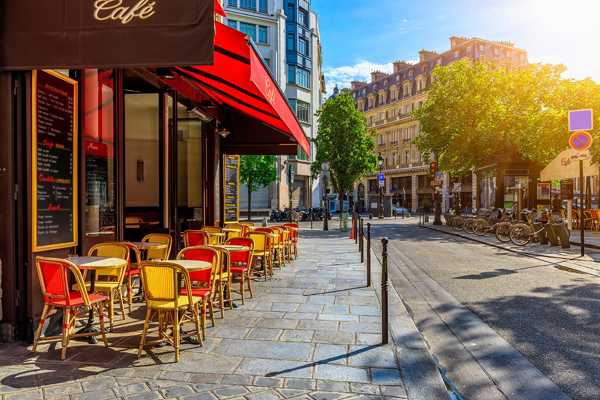Palais Garnier is one of the most important buildings in Paris. The opera house opened its doors to the city's high society in the 19th century. At the time, it was the world's largest opera house. Today, it's still an icon of sumptuous design, with opulent statues, paintings and gilding that takes inspiration from the Palace of Versailles. During the day the building is open as a historical monument, while at night it hosts dazzling performances of opera, dance, and music.
The best bits are above you, so take a moment to look up at the dazzling chandeliers, elaborately painted ceilings, and gilded mouldings. The Palais Garnier was the setting for Gaston Leroux's famous novel Phantom of the Opera, which was inspired by real events, including a counterweight falling off a chandelier and the cavernous underground lake that sits beneath the building.
Palais Garnier in Paris - one of the highlights of 14 Most Instagrammable Places in Paris and 11 Most Important Monuments in Paris (Read all about Paris here)
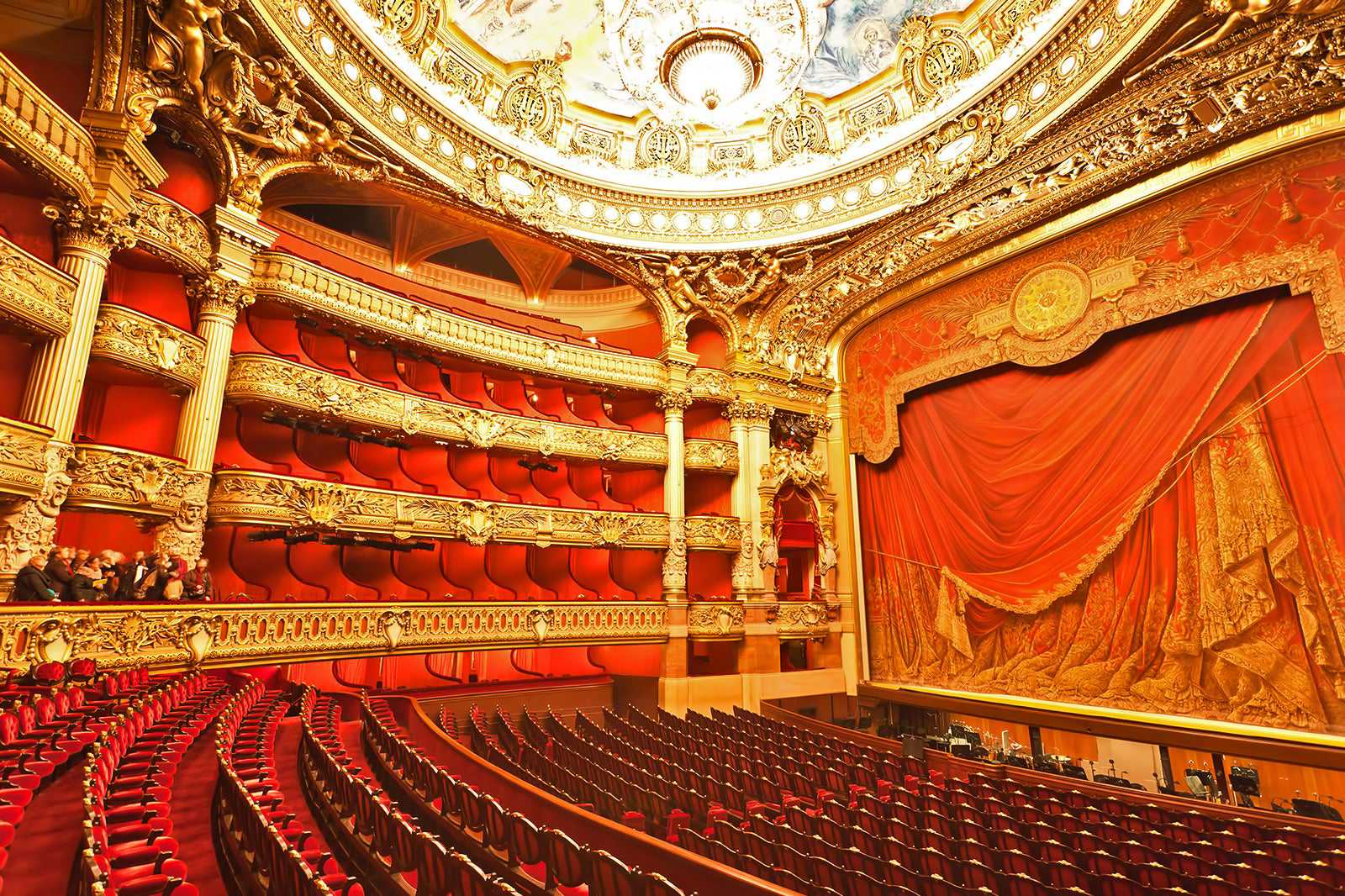
Architecture of Palais Garnier
The Palais Garnier opened in 1875, built as part of Napoléon III's renovation of Paris. No expense was spared, with opulent furnishings, rich gilding, and exquisite frescoes on every ceiling. The centrepiece of the building is the magnificent double staircase of white marble, with a soaring 30-metre-tall vault. Above the stairs, magnificent paintings by Isidore Pils depict the Triumph of Apollo and the Enchantment of Music.
The ceiling of the theatre also boasts a colossal 220-metre-long painting by modernist artist Marc Chagall, which adds an eye-catching contemporary look to the theatre. The grand foyer evokes the atmosphere of the Belle Époque, lit by a dozen heavy chandeliers, and covered in paintings and gilding. Sculptures of composers, animals and mythological figures decorate the stairs, while a bust of the architect, Charles Garnier, watches over the foyer.
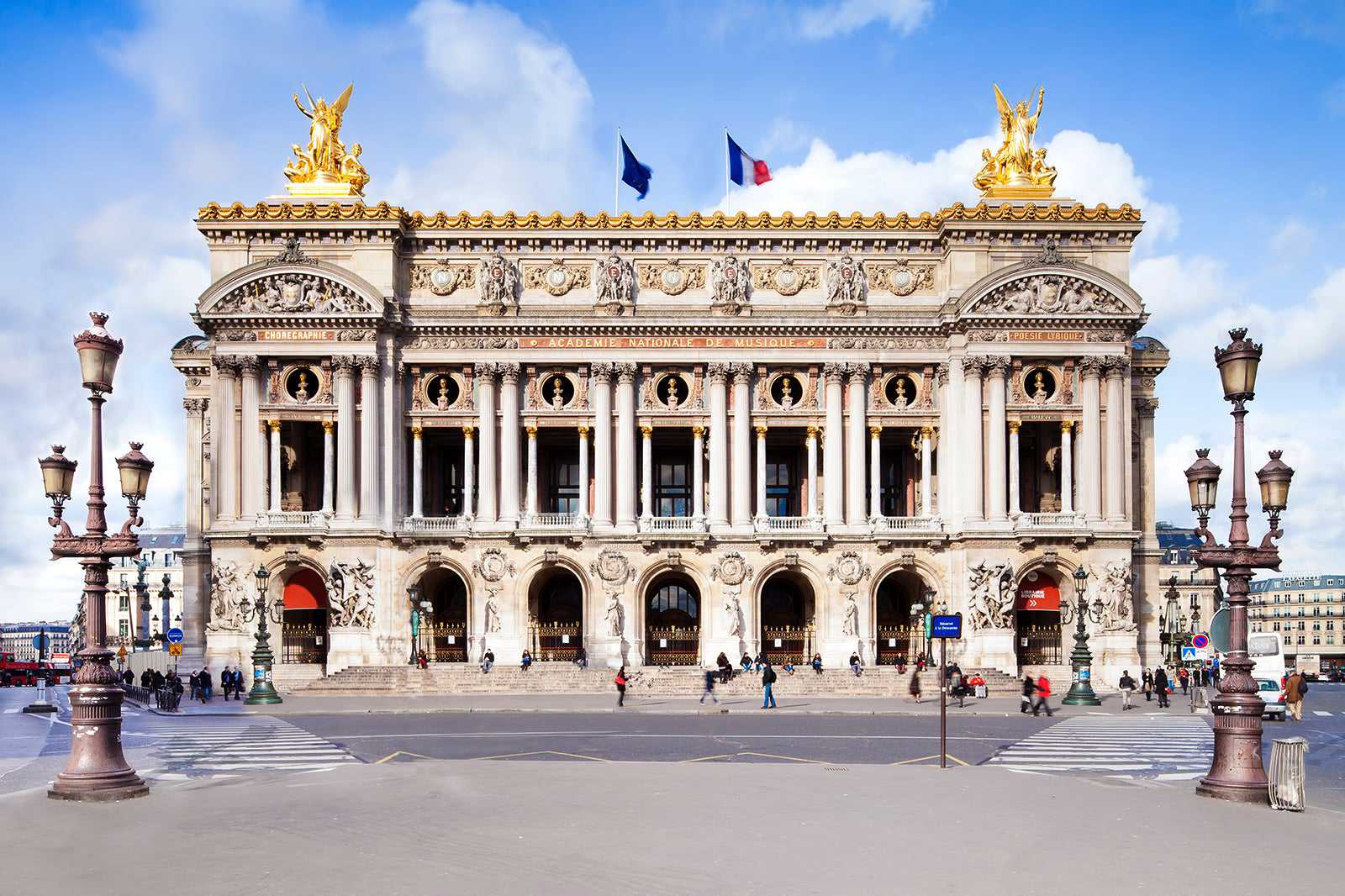
What are the highlights and features of Palais Garnier?
The Palais Garnier is the home of the Paris Opera Ballet and the Paris Opera Orchestra, and attending an opera, concert, or dance performance is undoubtedly a highlight of any visit. The architecture is as spectacular as the shows, especially the 7-tonne bronze and crystal chandelier in the theatre. Look out for the sculptures positioned around the great staircase, including female figures holding aloft lamps and a salamander climbing along the bannister.
See more of the Palais Garnier's rich operatic history with a visit to the Bibliothèque-Musée de l'Opéra National de Paris, which exhibits old costumes, set models, photographs, programs, and posters. Vast cisterns under the building store water for firefighters, the inspiration for the subterranean lake in Phantom of the Opera. Come for the night tour and you'll hear more fascinating legends as well as get a chance to look inside the Phantom's private box.
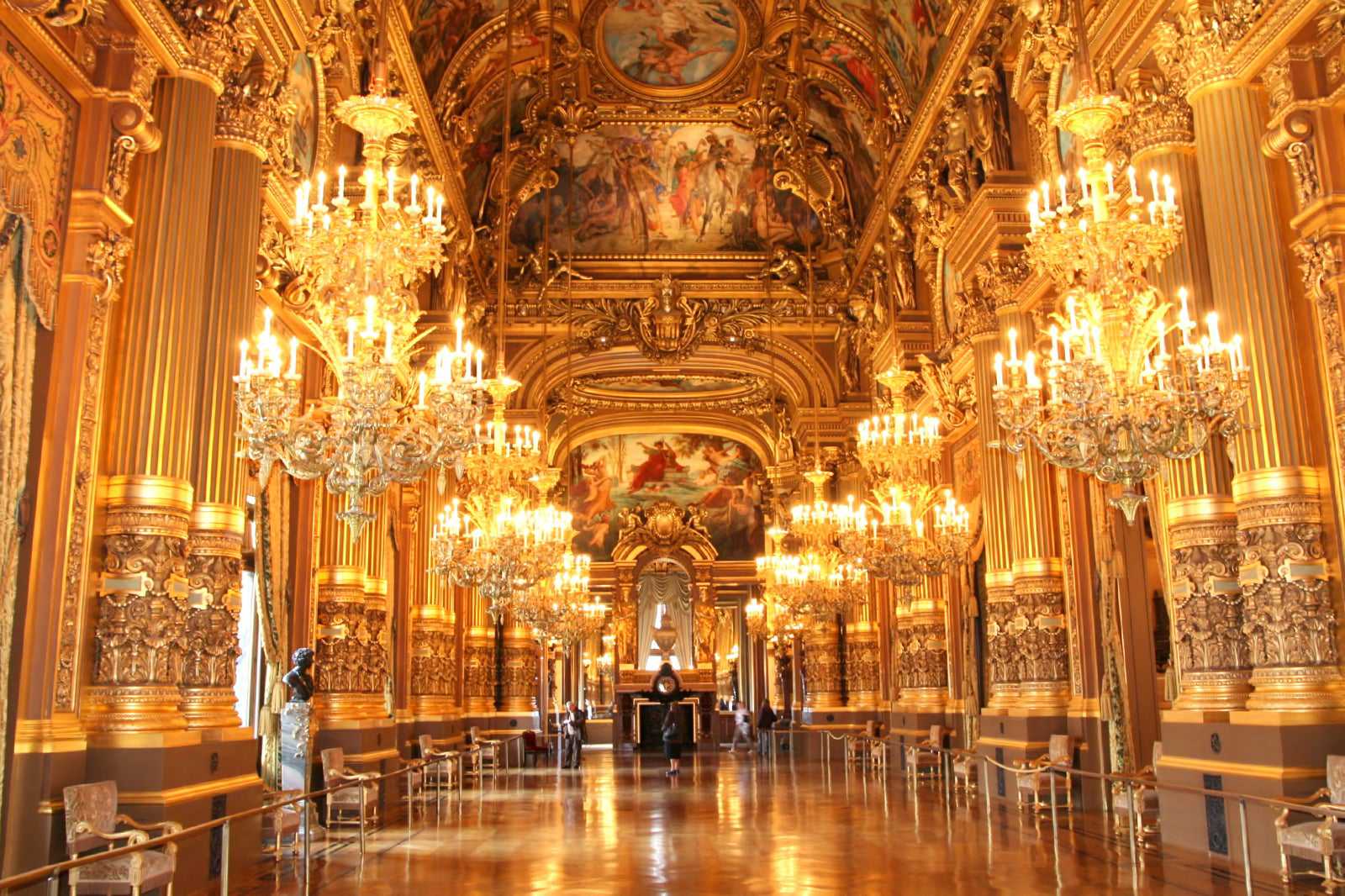
Good to know about Palais Garnier
Whether you're coming for a show or just wandering around, ticket lines for Palais Garnier can get long, so it's a good idea to book online. Get more out of your visit with a self-guided audio tour or guided tour of the building's history and architecture. The auditorium isn't accessible to visitors during rehearsals, so arrive early in the morning for the best chances of getting in.
It's worth paying a visit to the opera house's gift shop where, among the books, candles, bags, and jewellery, you'll find honey produced in the 5 beehives on the roof of the Palais Garnier. The old carriage room houses a restaurant, L'Opera, which serves a varied seasonal menu. The nearest subway station is Opéra, on lines 3, 7 and 8, or you can reach the Opéra bus stop on buses 21, 27, 66 and 95.
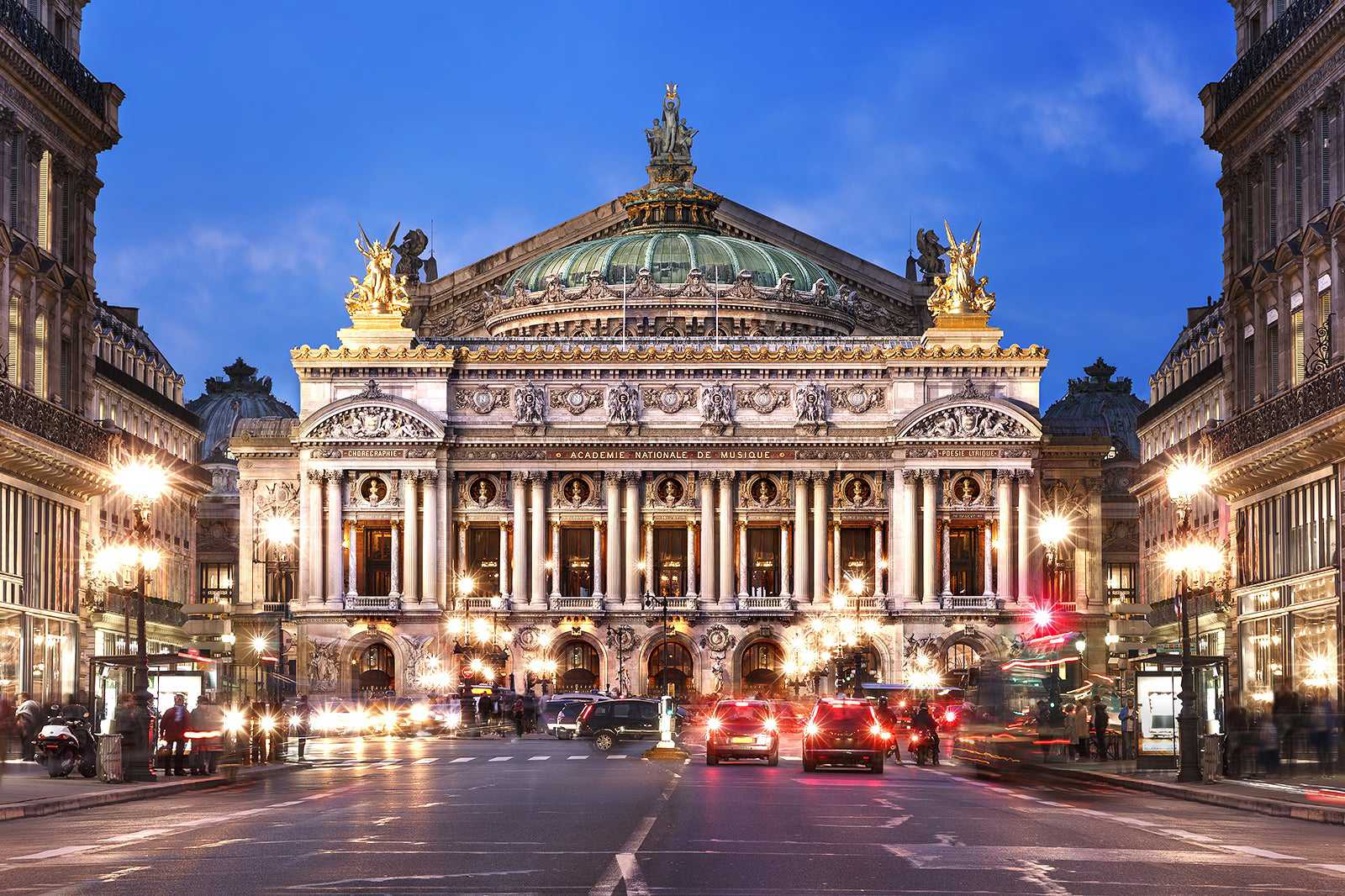
Palais Garnier in Paris
Konum: Place de l'Opéra, 75009 Paris, France
Telefon: +33 (0)1 71 25 24 23














